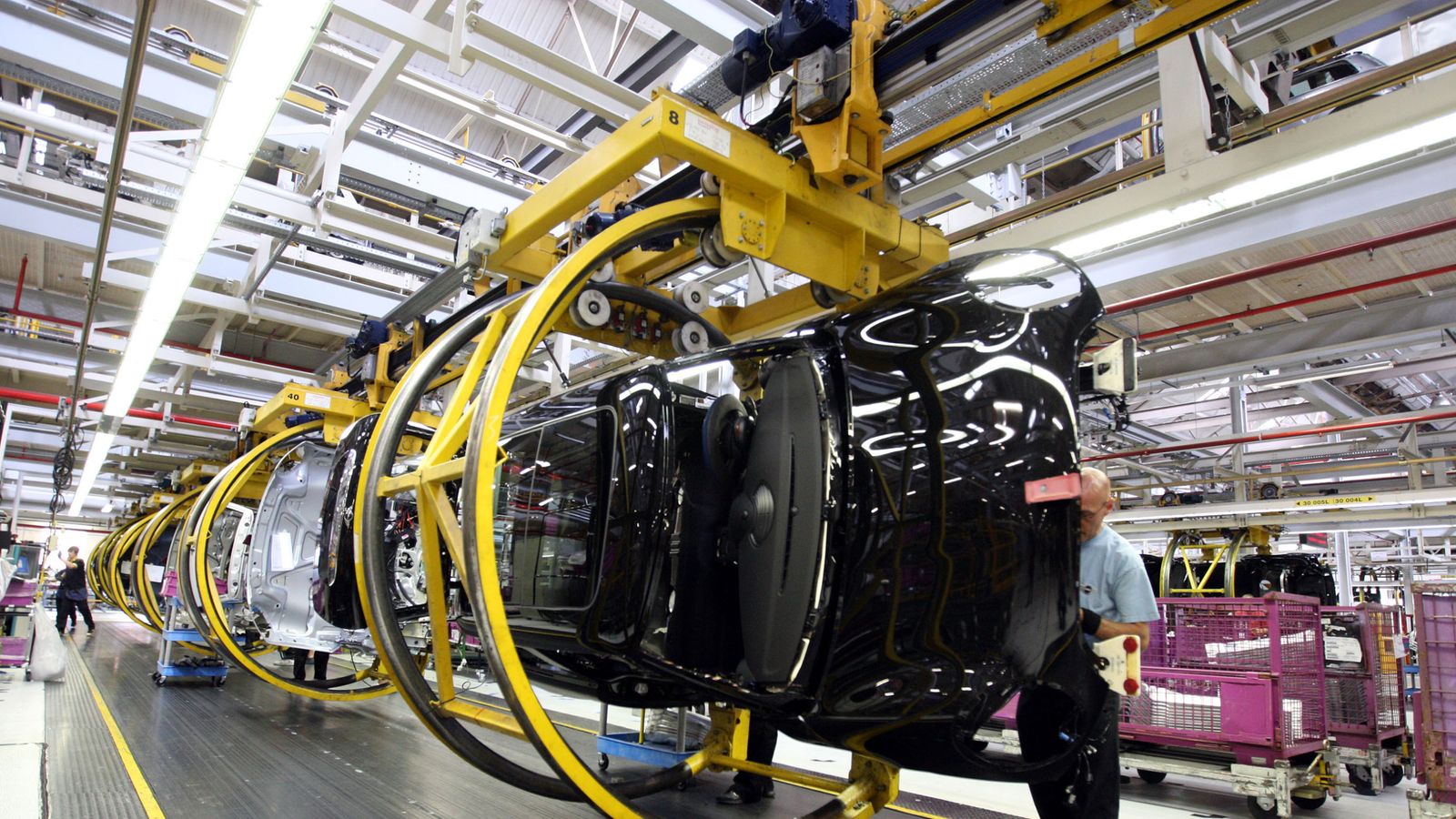UK car production remains stuck in the doldrums as chip shortages hamper the recovery from the coronavirus crisis, latest industry data shows.
The number of vehicles made last month was up by 46.6% on the same time last year when plants were forced to shut – but more than a fifth lower than the average for recent years.
A global semiconductor shortage was the most notable of problems faced by manufacturers, according to the Society of Manufacturers and Traders (SMMT), which compiled the figures.
Live COVID updates from across the UK and around the world
Please use Chrome browser for a more accessible video player
They come a day after it was announced that production of the Mini, which is made in Oxford, would be halted for a few days because of the shortage.
Last week Jaguar Land Rover, Britain’s biggest car maker, said production at its plants at Halewood and Castle Bromwich was being suspended temporarily for similar reasons.
The chip shortage has become a global manufacturing issue, with US carmaker Ford saying last night that it could cut production levels by half over the current second quarter.
Meanwhile, tech giant Apple warned that a shortfall could hit iPad and Mac sales by up to $4bn in the current quarter.
The monthly SMMT data showed that 115,498 cars rolled off UK production lines in March, up from 78,767 a year ago and the first year-on-year increase after 18 months of decline.
But the figure compares with a period when, in mid-March 2020, all car plants were forced to shut at the start of the first lockdown.
Please use Chrome browser for a more accessible video player
Over last year as a whole, production fell to the lowest level since 1984 – blamed on the temporary shutdowns as well as Brexit uncertainty and depressed demand.
The latest monthly total is 22.8%, or more than 30,000 vehicles, lower than the average for March over the past five years.
SMMT chief executive Mike Hawes said: “The first rise for UK car production since summer 2019 is a major step in the right direction but belies the underlying situation.
“With factories shut for much of March 2020, output was always going to be up but it remains below average, with some £11bn worth of production lost over the past year.
“Whilst the COVID situation is improving in the UK and in some major export markets, manufacturers are still struggling to manage residual issues, most notably the global semiconductor shortage.”
The figures also highlighted the shift from traditional diesel and petrol cars to battery electric and hybrid vehicles, with more than one in five cars made in the UK now “alternatively fuelled”.
A survey by the SMMT also pointed to the pressures facing the sector following the end of the Brexit transition period.
It showed that 91% were spending more time and resources managing trade with the EU – the biggest market for UK-made cars – than they did last year.






















